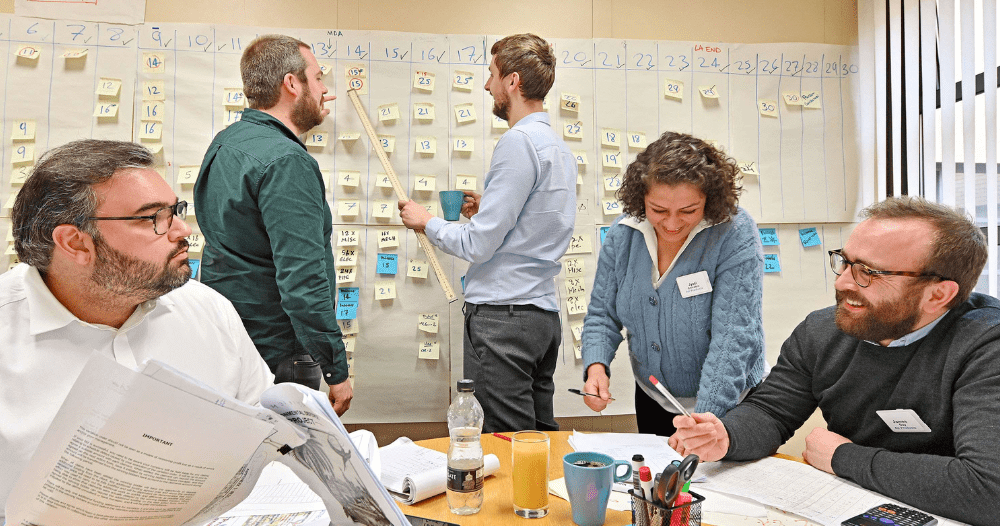ECITB’s levy proposals that received the overwhelming backing of industry in November, have been enacted into legislation following approval from both the House of Commons and House of Lords last week.
The draft Industrial Training Levy (Engineering Construction Industry Training Board) Order 2023 was tabled by The Minister for Skills, Apprenticeships and Higher Education (the Rt. Hon Robert Halfon MP) in the House of Commons.
Minister Halfon said: “The Government are clear that engineering construction is integral to achieving the objectives set out in the ‘Powering Up Britain’ strategy announced in March.
“However, the industry will need to continue to increase the volume of skilled workers coming into the industry in order to deliver on the key projects needed to achieve our objectives. That includes, but is not limited to, the retrofitting of industrial sites with carbon capture and hydrogen production technologies; the further expansion of offshore wind; and increasing our plans for the deployment of civil nuclear to provide up to 25% of our projected electricity demand by 2050, as envisaged in last year’s ‘British Energy Security Strategy’.
“That is where the work of the ECITB is critical. Over the 2023 to 2025 strategy period, the ECITB has committed to allocate up to 48% of its grant funding on new entrants, while the remaining 52% will support the upskilling of existing workers. That is vital to boosting the number of workers entering the industry and gaining the requisite skills required by employers.”
Andrew Hockey, CEO of the ECITB, said: “The ECITB received the overwhelming backing of industry for its levy proposals last November with engineering construction companies voting resoundingly in favour of its proposed levy rates for the next three years.
“Approval of the levy order now gives us the financial underpinning to deliver on our three-year strategy.
“Delivering against this strategy will support growth in the engineering construction industry by helping employers to recruit a more diverse workforce, training and certifying them against industry standards and addressing labour shortages and skills gaps.”
The ECITB launched the levy consultation following the publication of its new three-year strategy, Leading Industry Learning, in September 2022.
The high level of support for the proposals showed industry is fully behind the ECITB’s strategy to support employers in addressing skills shortages as well as investing in essential workplace training required to deliver the country’s net zero and energy security ambitions.
The Levy Order was affirmed by both Houses of Parliament, without opposition. The Statutory Instrument came into force on 21st July and is available on legislation.gov.uk.
The Order maintains the levy rates of 0.33% of the earnings paid by employers to off-site employees and 1.2% of the earnings paid by employers to on-site employees for businesses liable to pay the levy. The rates will be applied to levies raised in 2023-25 and will be payable in 2024, 2025 and 2026 respectively.
Recognising the budgetary pressures on small businesses, the Order retains the current exemption thresholds. Engineering construction employers with an annual wage bill of less than £1 million for off-site employees will not pay any levy. Employers with an average wage bill of less than £275,000 for on-site employees will also be exempted from paying the levy. These employers will nevertheless continue to be eligible to receive training grants if they are in-scope to the ECITB.
Leading the Grand Committee debate in the House of Lords, Baroness Barran, Parliamentary Under-secretary of state at the Department for Education said: “[the ECITB] has a clearly defined role in identifying engineering construction skill needs and plays a part, with others, in addressing them.
“The ECITB has a role in addressing any market failure through its levy and grants system, which gives employees essential skills necessary to access and work on engineering construction sites, drive up skill levels and incentivise training that otherwise simply would not take place.”
Minister Halfon also remarked on the importance of the ECITB’s levy and grant system, saying: “…if the levy were to cease, there would likely be a serious deterioration in the quality of training, creating a deficiency in skill levels and capacity and, crucially, leaving the sector unable to deliver key projects vital to the UK’s economic growth.”





